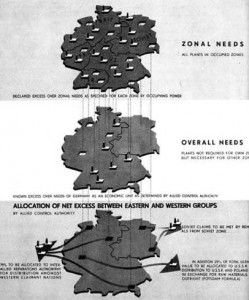George P. Shultz is a professor at Stanford with a list of qualifications that can give someone eye-strain. He and his buddy Kenneth W. Dam wrote a straight-up awesome book on economics called, Economic Policy Beyond the Headlines. The ISBN for this book is: 0-226-75599-1 and I think you’ll love it.
When reading the book, you’ll easily notice that Shultz comes from the perspective of a pro-free market and globalization background. His experience in working with world leaders and his words on the post WWII economics of the USA definitely look forward to less protectionist systems on imports and exports.
Yet what is extremely interesting with this book, is how even though one might say Economic Policy Beyond the Headlines is pro-globalization…the book has many things in common with many anti-globalization books that I’ve read and reviewed such as, Alternatives to Economic Globalization.
These two books at first seemed completely contradictory to each other and I was finding it entertaining to read the differences in socioeconomic ideology. But as I read more of Shultz’s words, it became obvious that both sides of the spectrum are dealing with similar issues.
Where Alternatives to Economic Globalization discussed how poor and under-employed citizens bear the brunt of inflation…Shultz brings up the point of how a negative tax system would be more efficient than our current one.
This was very strange to read at first because a negative tax system has a “Robin Hood-esque” feel to it of steal from the rich and give to the poor. In other words, a negative tax seemed idealistic and fairy-land, pie in the sky and it would never get off the ground in our political climate.
Besides, I thought to myself, “Why would a globalist push for a negative tax in the first place? Is he a Democrat?”
And the answer comes very quickly. What Shultz puts forward is the idea that a negative tax would help compensate for inflation and add to the churning of the economy. This in his estimation would be more efficient than price controls.
I love how he brings up the fact of how bartering affects the tax system as a whole. When people barter, there’s no real paper trail and it’s hard to tax. So it makes sense for people to at least have SOME money to spend of things. How else is the legitimate tax system going to acquire any funds?
And if you think this is interesting…this subject is just a tiny…miniscule aspect of Economic Policy Beyond the Headlines. I’m telling you, you’re goona love this book.
Shultz brings up the whole gold standard issue with extreme methodical precision. It’s easy to follow along through all the facts of the Pre-Nixon era presidencies and how smaller decisions led to the larger monumental policy changes of the modern money system. It takes much of the oversimplification and cat & mouse vaudevillian antics out of all the crack-pot 3-minute descriptions of “why things are the way they are.”
One suggestion when reading this book is to not get tripped up on all the dates and details. The trick is to just read the book and let the facts wash over you and let them sink in. If you can’t remember a certain date or fact, don’t worry about looking everything up right then. When you have the time and if something is still irking you, go ahead and look up those concepts later. This uninterrupted reading style is part of a system I’ve developed called, Subconscious Reading Techniques which is one of my best and most popular articles which you can read HERE.
If you’re into the energy crisis and want to have some excellent concepts and facts to back up your argument on the Oil issues and energy research and development predicament of today…then Economic Policy Beyond the Headlines is the book for you. Although you have to wait for the later chapters to get to this subject matter, the amount of information is definitely worth it. I was again surprised to see how Shultz thinks the energy research progress in the USA is no where near where it should be. He often discusses how we aren’t capitalizing on our most abundant resource which is coal. Also, the book brings up how price controls on fuel and oil tends to have an adverse affect on energy research. This is because he says that by artificially keeping energy prices low, there is a negative incentive for private researchers to get in on the action. That’s a very interesting perspective and it helped me clear up the personal confusion I was having on why energy research is primarily handled by large universities which have government or big business backing.
Overall Economic Policy Beyond the Headlines is an outstanding read. Go and get your copy today.
-Tyler
